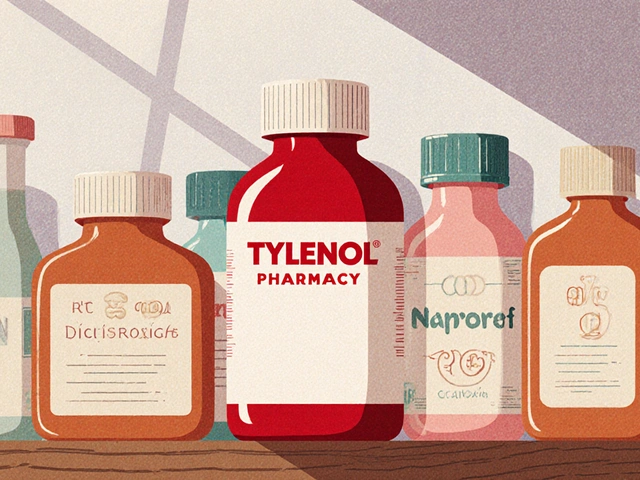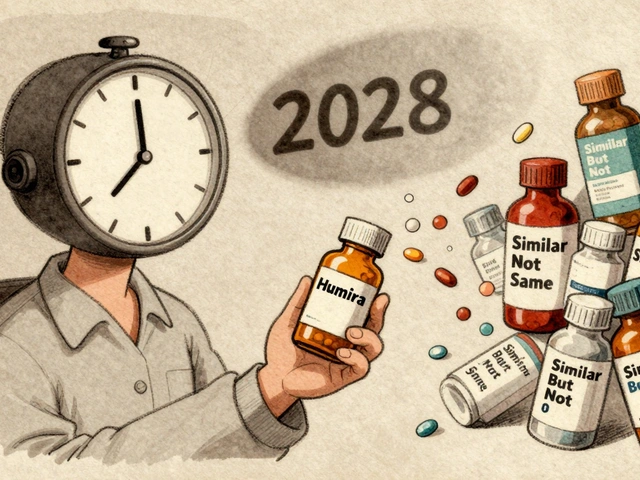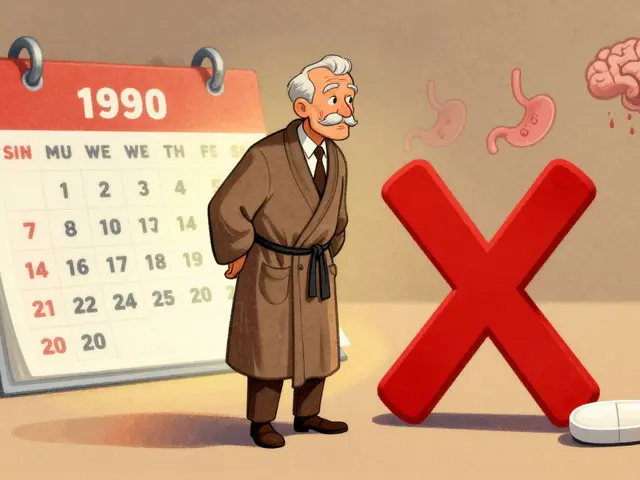Hypocalcemia: when low blood calcium bites back
Feeling tingling in your fingers, sudden muscle cramps, or a weird flutter in your chest? Those can be signs your blood calcium is too low — hypocalcemia. Low calcium isn’t just annoying: it can cause spasms, seizures, or dangerous heart rhythm changes if ignored. This guide tells you what usually causes it, how doctors check for it, and what to do fast.
What causes hypocalcemia?
Several common problems can knock calcium down. Low vitamin D is a top culprit because vitamin D helps your gut absorb calcium. If your parathyroid glands don’t make enough parathyroid hormone (PTH) — for example after neck surgery or from autoimmune issues — calcium falls. Kidney disease matters too: sick kidneys waste calcium and fail to activate vitamin D. Low magnesium can block PTH and trigger low calcium. Certain drugs also play a role — loop diuretics raise calcium loss in urine, some cancer treatments and IV bisphosphonates can drop calcium quickly, and antiresorptive agents like denosumab sometimes cause severe low calcium. Also remember: low albumin (a blood protein) makes total calcium look low even when active calcium (ionized) is fine.
How hypocalcemia is diagnosed and treated
Diagnosis starts with a blood test. Doctors check total serum calcium, and if albumin is low they either measure ionized calcium or use a correction formula: corrected Ca = measured Ca + 0.8 × (4.0 − albumin in g/dL). They often test magnesium, phosphate, PTH, vitamin D, and kidney function. An ECG may be done to look for a prolonged QT interval, a risky heart sign.
Treatment depends on how bad it is. For mild, chronic low calcium, oral calcium supplements plus vitamin D (or active vitamin D — calcitriol — if needed) usually do the job. If magnesium is low, fixing that helps calcium come up. For sudden, severe hypocalcemia — intense spasms, seizures, or dangerous heart findings — hospitals give IV calcium (calcium gluconate is commonly used) and watch the heart on a monitor. Long-term low calcium from low PTH may need specialist medicines like recombinant PTH and regular follow-up.
Want practical prevention tips? Keep vitamin D in a healthy range (sun exposure and diet help), eat calcium-rich foods (dairy, fortified plant milks, canned fish with bones, leafy greens), and tell your doctor about medicines that might lower calcium. If you’ve had thyroid or neck surgery, or you have kidney disease, get regular checks so drops are caught early.
When should you get urgent care? Go to ER now if you have severe muscle spasms, numbness spreading to the face or hands, fainting, new confusion, chest pain, or a seizure. For milder symptoms, contact your doctor and ask for blood tests that include calcium, magnesium, vitamin D, and PTH.
Hypocalcemia is common and treatable when caught. With the right tests and quick steps, you can avoid the scary complications and get back to normal calcium levels.

Hypocalcemia in Pregnancy: What to Know and How to Manage It
As a pregnant woman, I recently learned about hypocalcemia, a condition where the body has low calcium levels. It's crucial to be aware of this issue during pregnancy as calcium plays a vital role in both the mother's and baby's health. To manage hypocalcemia, it's recommended to consume calcium-rich foods, such as dairy products, leafy greens, and almonds. Additionally, taking calcium supplements and maintaining regular check-ups with your healthcare provider can help ensure a healthy pregnancy. It's important to keep an eye on our calcium levels to support the well-being of both ourselves and our babies.
Read More




